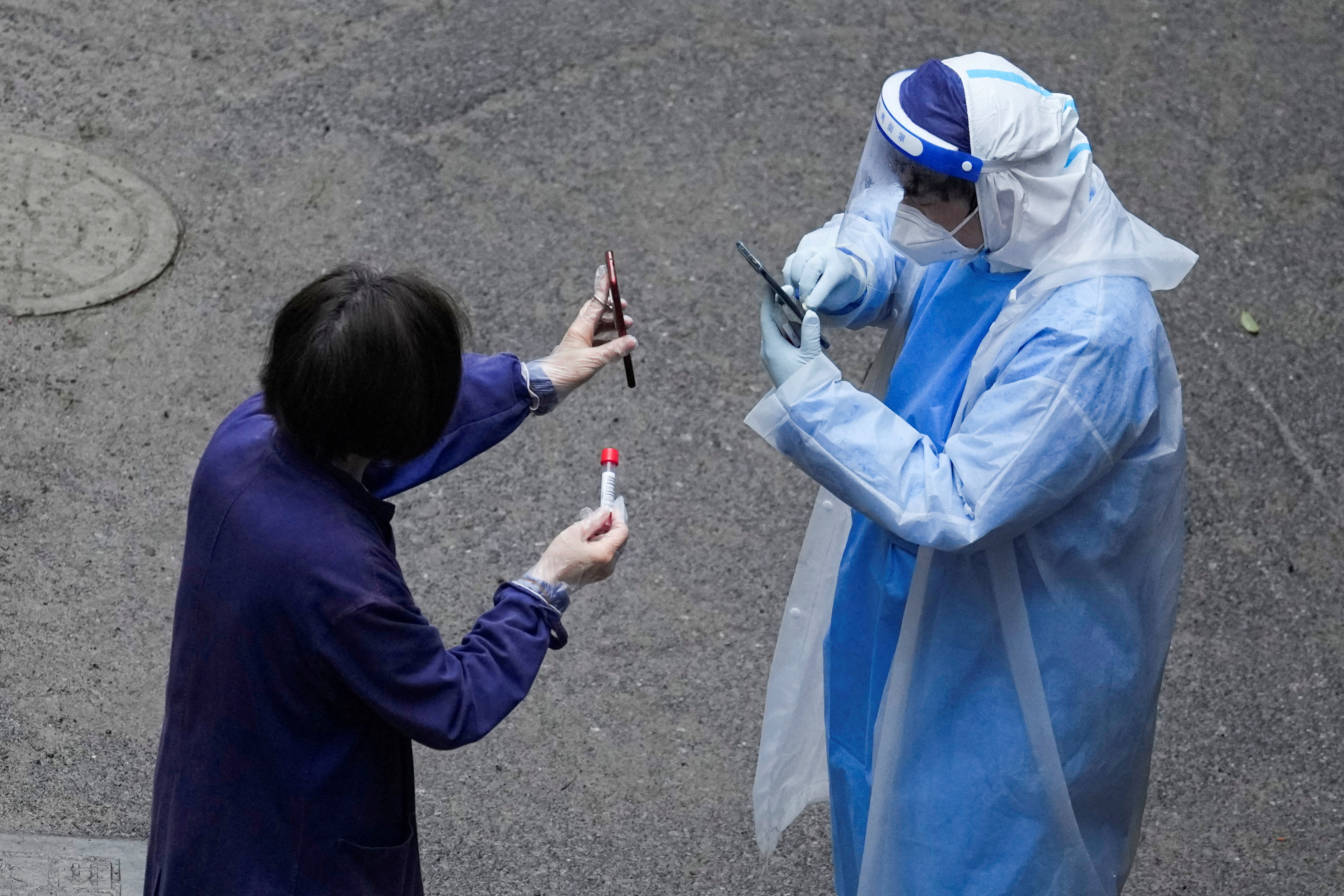Medical workers in protective suits collect swabs from residents during a city-wide nucleic acid test following coronavirus disease (COVID-19) cases in Zhengzhou, Henan province, China.
The central Chinese province of Henan and its capital, Zhengzhou, would be using anti-covid QR codes to prevent local bank clients involved in legal problems from entering their territory according to the Hong Kong media Phoenix TV.
This medium indicates that some of the clients of these banks saw their health code turn red – which does not allow travel to other territories or access to public places – upon arrival in Henan or even before embarking on their journey.
Since the beginning of the pandemic, Chinese local governments have issued these codes, which attest that the user has not passed through an area at risk of contagion or has had contact with possible infected people.
However, in recent months there have been indications that the Chinese authorities have used these codes to prevent unwanted displacement. such as the case of a lawyer who told Efeat the end of last year, how he had been assigned a red QR before traveling to visit the mother of an imprisoned woman.
On this occasion, a woman surnamed Ai said that, upon arriving in Zhengzhou last Sunday, she was visited at her hotel by a policeman who asked her the reason for her trip, to which she replied that she wanted to withdraw her savings.
Shortly after, Ai noticed that her health code had suddenly turned red.

A worker in a protective suit checks the QR code on a resident’s phone for nucleic acid testing during the lockdown, amid the coronavirus disease (COVID-19) pandemic, in Shanghai, China
Phoenix TV It also reports the case of another woman named Xiao Nan who, despite not moving from Shenzhen (southeast), the city where she lives, also received a red QR, apparently related to the fact that she had about 350,000 yuan (51,840 dollars, 49,800 euros). ) deposited in various banks in Henan.
The local authorities explained to Xiao Nan that it was precisely the Government of Henan that had requested that he be assigned a red code, despite the fact that this would also prevent him from accessing public places in Shenzhen.
Also, many members of a group affected by the banking crisis in Henan on the popular messaging platform WeChat also saw their codes turn red.
According to the regulations of that province, Red codes can only be assigned to people who are confirmed cases of covid, who have been isolated because they are close contacts with infected people, or those who arrive from abroad or from areas of the country considered at risk.
The matter has sparked debate on the Weibo social network -the local equivalent of Twitter, censored in the Asian country-, where some Internet users expressed their outrage at the abuse of a pandemic prevention tool: “The health code has already become a political tool”, lamented a user.
Since last April, some rural banks in Henan have limited the withdrawal of cash by their customers.
The authorities notified the shareholders of some of these entities that the banks were under investigation, suspected of having incurred irregularities in their deposits.
According to Phoenix TVAs many as 400,000 customers could be affected, and some of those living in other provinces have tried to travel to Henan in hopes of withdrawing their savings.

:quality(85)//cloudfront-us-east-1.images.arcpublishing.com/infobae/YUCO73EKUEHC7CC2W7P3SZNCSM.jpg)